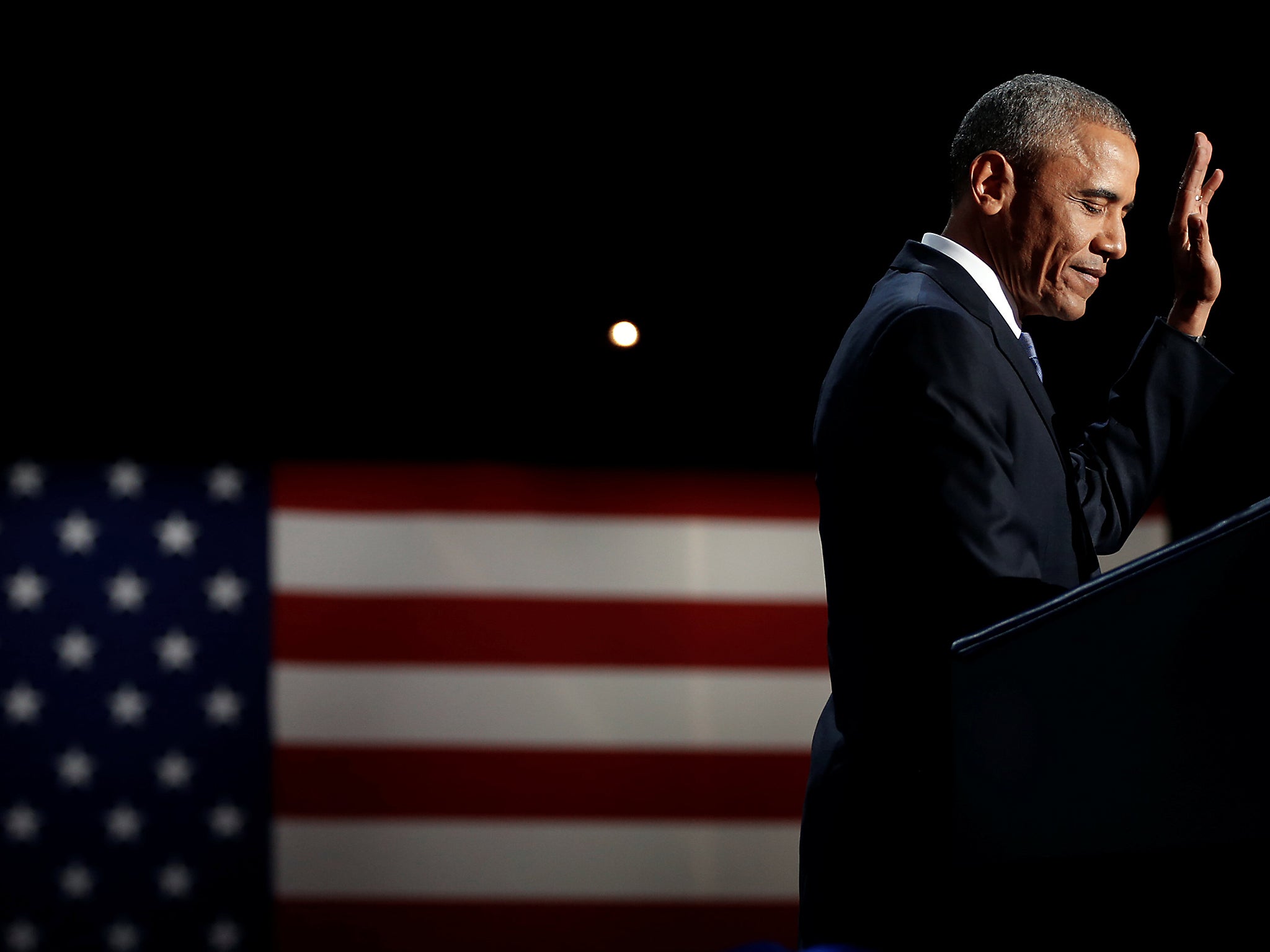This is the one good thing about Obama's legacy in Israel – and John Kerry might be about to destroy it
Stating that Israel must be a 'Jewish state' in which the 1.7m Palestinian citizens of Israel 'live as equal citizens' is not grounded in reality: there are already over 50 laws that discriminate against them, and Kerry’s principles do nothing to address these

The opposition Israeli Prime Minister Benjamin Netanyahu faces to Israel’s colonial designs on the occupied Palestinian territory looms large on the world stage in the upcoming Paris peace conference on 15 January. The conference reportedly seeks to adopt parameters for a resolution of the conflict that may then be enshrined in a UN Security Council resolution on 17 January in a last-ditch attempt to save a two-state solution.
From a Palestinian perspective, any such parameters are likely to weaken UN Security Council Resolution (UNSCR) 2334, adopted on 23 December 2016, and thus the modest legacy of the Obama administration – especially if they are based on US Secretary of State John Kerry’s six principles to resolve the conflict.
Kerry’s principles are full of internal contradictions. For example, saying that Israel must be a “Jewish state” in which the 1.7 million Palestinian citizens of Israel “must be able to live as equal citizens” is not grounded in reality: there are already over 50 laws that discriminate against them, and Kerry’s principles do nothing to address these.
Both the Kerry principles and the UN resolution's attempt to balance between the illegality of Israel’s settlements on the one hand, and incitement to violence, on the other. However, only UNSCR 2334 is grounded in international law.
This is why Kerry’s — and the Obama administration’s — true legacy on Palestine is its abstention on UNSCR 2334. By standing aside and letting it pass, with its clear denunciation of Israel’s military occupation and the illegality of its settlements, including in East Jerusalem, the Obama Administration reaffirmed the application of international law to the conflict.
UNSCR 2334 is significant for the Palestinian people, even though it also has its critics on the Palestinian side and is in any case unlikely to be implemented in the foreseeable future. Moreover, it has broader implications for global peace and security that go well beyond the Palestinian-Israeli conflict.
For Palestinians, it is important because it holds the line — the so-called Green Line that demarcated what became Israel in 1948 from the Palestinian land it conquered in 1967. The Israeli government has been trying hard to erase that line and to win international legitimacy for its illegally implanted settlements and settlers.
For example, its UN ambassador Danny Danon wants to annex the West Bank and Education Minister Naftali Bennett wants to start by annexing the massive — and illegal under international law — settlement of Maale Adumim as a first step to annexing Area C, which accounts for some 60 per cent of occupied West Bank land. With the election of Donald Trump as the next US president, Israel appears unstoppable.
However, UNSCR 2334 has put a spoke in this fast-moving wheel. Trump may move the US Embassy to Jerusalem but other countries that might have followed suit have now been given pause.
The resolution went further than any previous text in calling on “all States” to “distinguish in their dealings” between Israeli territory and the territories it occupied in 1967. European and other governments are encouraged to reinforce decisions they have already made on labelling imports from Israeli settlements and go further in differentiating their dealings with Israel.
UNSCR 2334 also strengthens civil society organisations’ efforts to push for banning settlement products altogether as part of their work to hold Israel accountable for human rights violations through boycotts, divestment, and sanctions. Perhaps most importantly, the resolution provides the International Criminal Court with a reaffirmed international position as it considers the status of settlements as war crimes.
It is here that UNSCR 2334 is bigger than the question of Palestine. In order to legalise its settlements, Israel would have to overturn much of the legal order painstakingly put in place to prevent the recurrence of the world wars of the 20th century. For Europe, this is especially vital.
As a European diplomat put it during a 2014 off-the-record meeting organised by The Elders, a group of global leaders working for peace and human rights founded by Nelson Mandela, “We need to make Israel feel that settlements are not acceptable to us not only because it violates your rights but because it violates our efforts to build an international system that is respected.”
It is the sanctity of that international system which is at stake. International law is far from perfect, but it is all there is. Just ask Ukraine. Prime Minister Netanyahu cancelled the Ukrainian prime minister’s planned visit to protest the country’s vote for UNSCR 2334. In response, Ukraine pointed out that it had itself fallen victim to a violation of international law and has consistently called for international law to be observed everywhere.
Yes, there is hypocrisy: the states that immediately slapped sanctions against Russia for its occupation of Ukrainian territory two years ago have yet to do so over Israel’s occupation of Palestinian territory 50 years ago.
And yet, UNSCR 2334 shows the world is not ready to give up on international law for the sake of Israel’s settlements. This, for Palestinians, is a powerful, non-violent tool against Israel’s military power that can provide much-needed protection during the Trump years. And Kerry's speech, however late and problematic, has helped to lay bare the harsh, apartheid reality Israel has created and that needs to be dismantled if there is ever to be peace.
Nadia Hijab is Executive Director of Al-Shabaka: The Palestinian Policy Network

Join our commenting forum
Join thought-provoking conversations, follow other Independent readers and see their replies